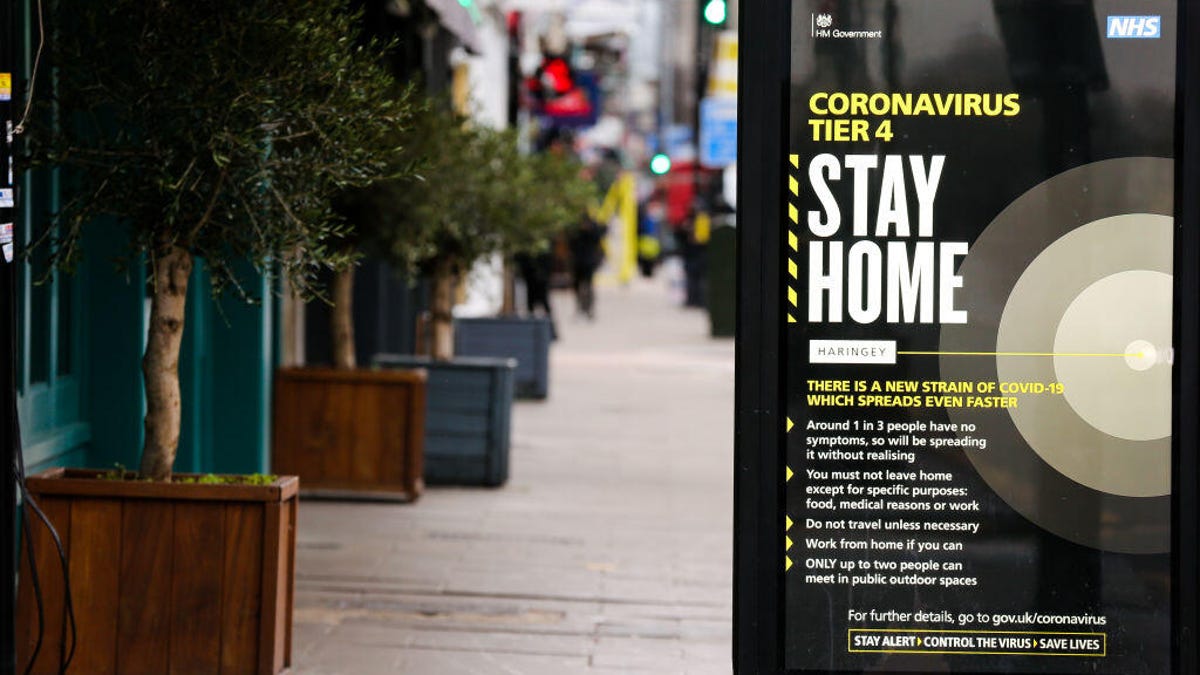More-contagious UK coronavirus mutation appears in United States
The variant is said to be more transmissible, though there's no evidence it's deadlier or makes people sicker.

A "Stay Home" sign in London the day after Christmas.
The new coronavirus variant discovered in Britain and said to be more contagious has shown up in the US.
"Today we discovered Colorado's first case of the COVID-19 variant B.1.1.7, the same variant discovered in the UK," Colorado Gov. Jared Polis tweeted on Tuesday. A statement included with the tweet said the patient is a man in his 20s with no travel history. Public health officials are conducting contact tracing interviews to spot other potential cases, the statement said, adding that no close contacts with the patient have been discovered thus far.
The coronavirus variant prompted Britain to go into a strict lockdown during the Christmas break, and various countries, including the US, have put stronger entry requirements in place for travelers arriving from the UK. The variant has also appeared in other countries, including Australia, Canada, France, Spain and Japan.
There's no evidence that the variant is any deadlier than previously known strains of the coronavirus, or that it makes people any sicker or is resistant to the vaccines that've been developed. But a study released last week by a team of UK scientists estimated that it's 56% more contagious, The New York Times reported. The British government had earlier said the variant might be up to 70% more transmissible.
Much remains to be discovered about the variant.
"I think we have to keep an eye on it, and we have to take it seriously," Anthony Fauci, director of the US National Institute of Allergy and Infectious Diseases, told The Washington Post on Tuesday. "We obviously take any kind of mutation that might have a functional significance seriously. But I don't think we know enough about it to make any definitive statements, except to follow it carefully and study it carefully."
Read more: Why you shouldn't panic about the UK's mutant coronavirus strain

